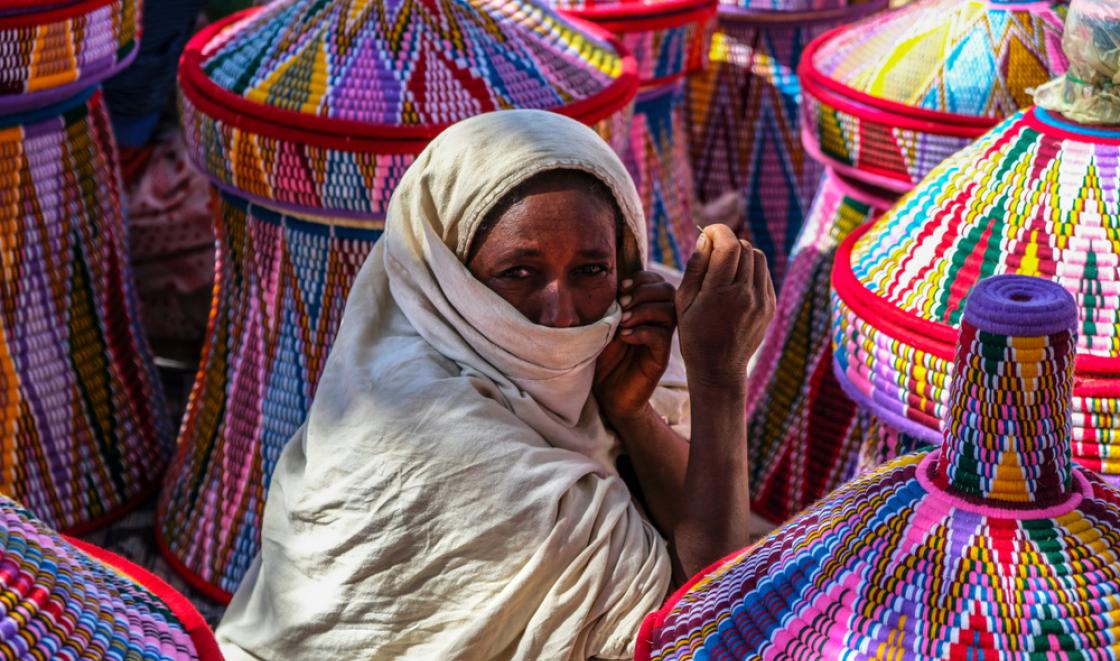About the research study
This research will investigate whether IPV moderates women’s response to psychosocial interventions for common mental disorders (CMDs) in LMICs. It will test whether adapting a psychological intervention to explicitly address IPV, and recruitment, randomisation, implementation, follow-up and evaluation of that intervention is feasible and acceptable to perinatal women and health workers in rural Ethiopia.
Study aims
First, to review the published evidence from studies of talking therapies delivered in low-income and middle-income countries, to find out whether women who report IPV respond better or worse than women who don't report IPV to treatments for common mental health problems like depression, anxiety and post-traumatic stress disorder.
Second, to interview women with experience of IPV and/or depression and healthcare workers about their perspectives and use the results to adapt a brief talking therapy to address women's experiences of IPV in rural Ethiopia. This research will then test out whether the adapted intervention is acceptable to women and healthcare workers and practical to deliver, by randomly allocating pregnant women with depression who report IPV to either (i) this intervention, (ii) a standard talking therapy which hasn't been adapted for women experiencing IPV, or (iii) a 'control' condition: information about sources of support.
How the research will be carried out
(1) A systematic review and meta-analysis (accepted for publication in The Lancet Psychiatry).
(2) Qualitative interviews with women and healthcare workers (currently completing, with 21 interviews conducted).
(3) A randomised feasibility study.
How are the public involved in this research?
The King's College London Section of Women's Mental Health Patient and Public Involvement group provided feedback on this research project prior to its commencement.
A Community Advisory Board (CAB), comprising community members, government and healthcare workers based in Sodo, Ethiopia, participated in a Theory of Change workshop at the inception of this research study in July 2017. The CAB will continue to be consulted at each stage of research progress and dissemination of findings.
A diverse group of healthcare workers (midwives, nurses and health extension workers) active in antenatal care participated in a Theory of Change workshop to refine the intervention in October 2018. As there are no community groups representing women experiencing IPV in this region, the experiences and perspectives of this group are being captured through qualitative interviews. A Theory of Change workshop with this group is planned for 2020.
How this research addresses the needs of people living in south London
Although this research is focused on the needs of pregnant women living in rural Ethiopia, the research team think that it will provide important information that is relevant to the needs of pregnant women living in south London. This is because:
(1) IPV and depression are common in south London too,
(2) South London is a diverse region in which many pregnant women face cultural, language and educational barriers to receiving help for both their mental health and IPV and;
(3) brief, low-cost mental health interventions integrated into antenatal care that meet the needs of pregnant women experiencing IPV could also be trialled in south London in future if it is found to be effective.
Potential benefits of the project
This project will yield new meta-analytic, qualitative and feasibility study research results on the subject of IPV and perinatal mental health in LMICs. These outputs will form the foundations for a post-doctoral randomised controlled trial of the adapted intervention, to investigate its efficacy, scalability and cost-effectiveness. In turn, this work will benefit the primary healthcare sector in rural Ethiopia and the research community investigating IPV and perinatal mental health in LMICs. Longer term, the resulting intervention could be adapted for other settings, improving perinatal mental health in diverse settings.
The study is funded by a King's College London, clinician investigator scholarship for Roxanne Keynejad and a postdoctoral fellowship for Tesera Bitew as part of the Wellcome Trust DELTAS programme: African Mental Health Research Initiative (AMARI) and a fellowship from the NIHR Global Health Research Unit on Health System Strengthening in Sub-Saharan Africa. It was adopted by ARC South London in November 2019 and will be completed by October 2021.
Project leads: Dr Roxanne Keynejad, clinical research fellow, King’s College London
Dr Tesera Bitew, assistant professor (PhD) in mental health epidemiology at Addis Ababa University (AAU), Ethiopia.
